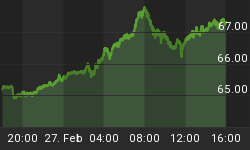Editor's note: The following article is adapted from the State of the Global Markets Report--2016 Edition, one of the most anticipated annual reports for technically minded investors and analysts around the world. For a limited time, we are making the report available 100% free of charge. After that, it goes to $99 per download, where it will stay for the rest of the year. Click here to get your free copy now >>
This Financial Times article alerts readers to another bygone bubble where a surging comeback has recaptured investors' imaginations:
Britons Pin Their Pension Hopes on Property
The UK has fallen in love with property as the best way to make money for retirement--FT, Nov. 11, 2015
Once again, fast-rising home prices have "convinced the public that bricks and mortar are likely to provide the most comfortable retirement." (FT, 11/11/15)
A recent survey of 10,000 Britons finds that 44% believe property will be their biggest moneymaker during retirement. Pension income came in a distant second place at 25%, while stock investments took third.
Here's how one retirement specialist captures the magnitude of society's preoccupation with property: "For many people now approaching retirement, their property ... will be particularly relevant as a capital reserve for costs such as later-life care." (FT, 11/11/15)
By itself, the widespread belief that real estate is the financial equivalent to cash is one of the most dangerous ideas going. Cash is liquid by definition, whereas property requires time, energy and money to off-load. Cash generates income; homes generate expenses. Cash is boring and, as an investment, cash exists in a financial corner that is totally off the average investor's radar. Real estate, in contrast, is caught in the throes of another speculative frenzy that nearly everyone expects to continue.
Take the chart below, which compares London home prices to first-time buyer affordability (mortgage payments as a percentage of mean take-home pay).

It shows a rising lower graph, which indicates the declining affordability of London homes, because a greater percentage of income goes to meet mortgage payments.
When buyer affordability hit 69.6% in the fourth quarter of 2007, London home prices promptly plummeted 20%. Prices bottomed in the first quarter of 2009, sending mortgage payments back below 50% of take-home pay.
But, today, nearly 66% of Londoners' income is going toward mortgage payments, just a few percentage points shy of the 2007 peak.
More important, the top graph depicts an extended fifth wave in London home prices, with wave (5) of 5 reaching equality with wave (1) of 5. This is a common wave relationship.
As the textbook Elliott Wave Principle observes, fifth-wave extensions "are typically followed by swift retracements," which usually return to the price territory of the "fourth wave of one larger degree." So, by common wave relationships alone, London home prices are set for a 30%-50% decline.
Either way, unaffordable homes are once again colliding with euphoric sentiment and complete Elliott wave patterns. The combination should prove to be even more deadly than it did in 2007.
Click here to continue reading the rest of the 50-page State of the Global Markets Report--2016 Edition 100% free >>















